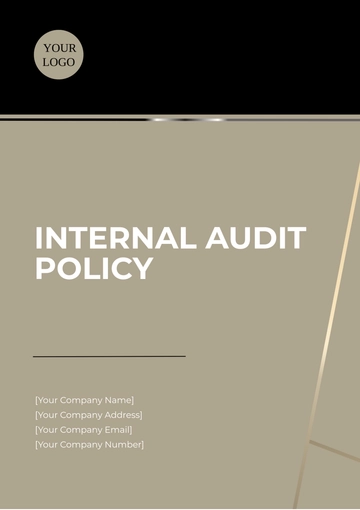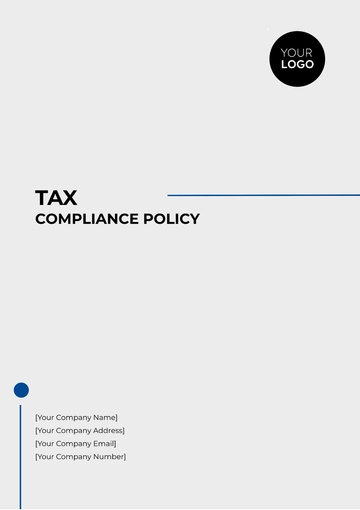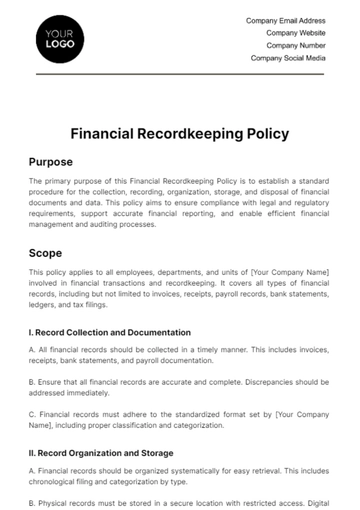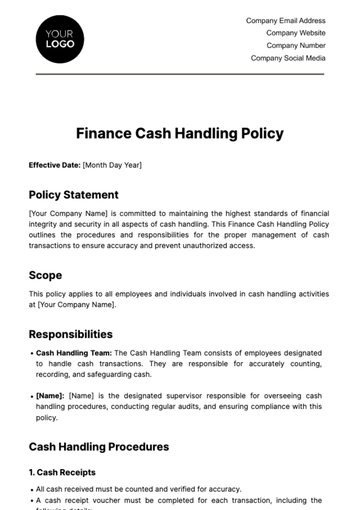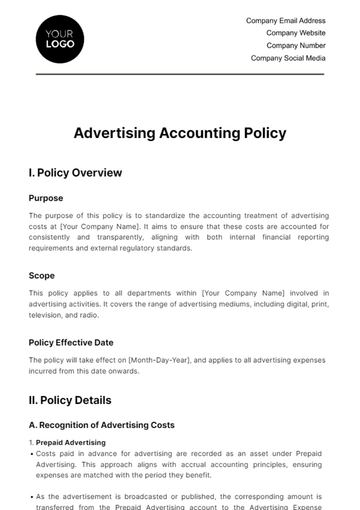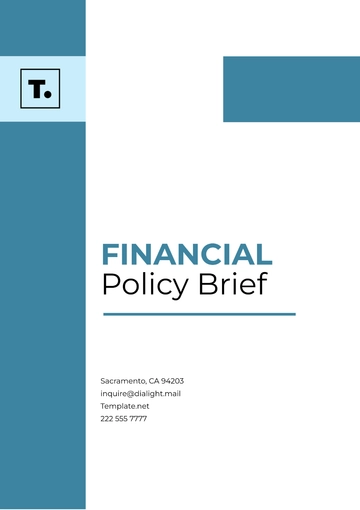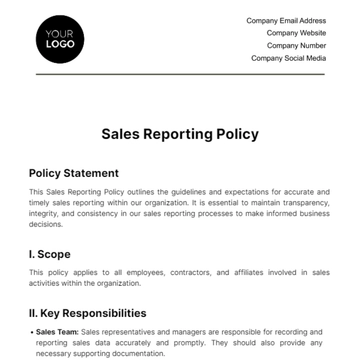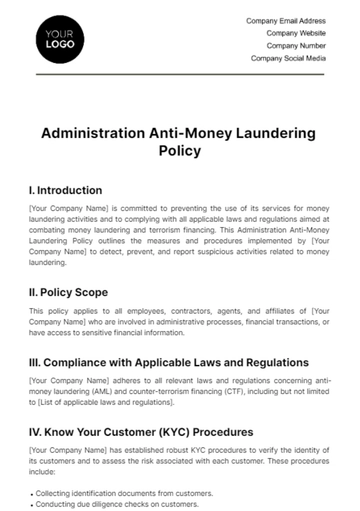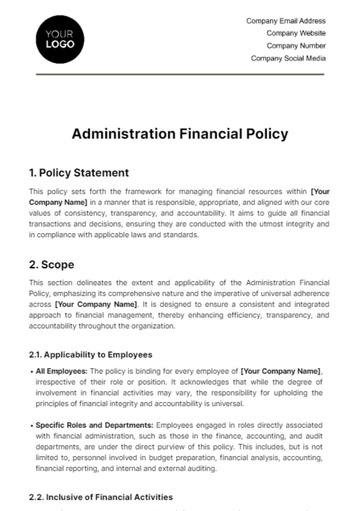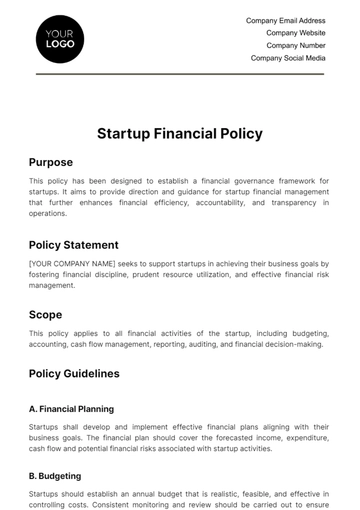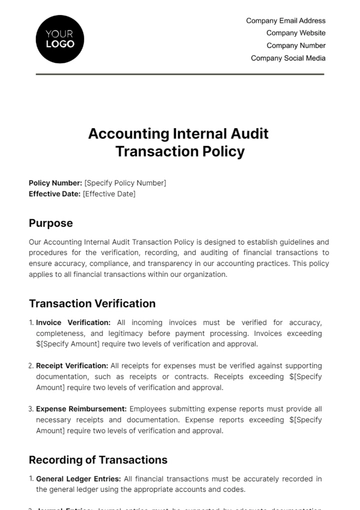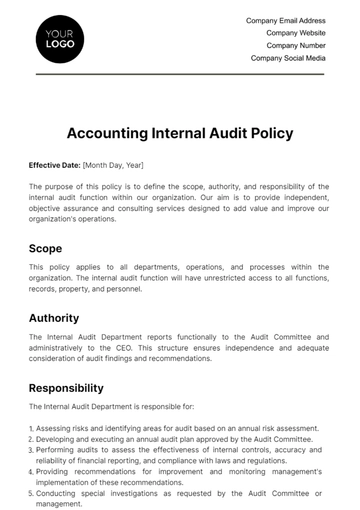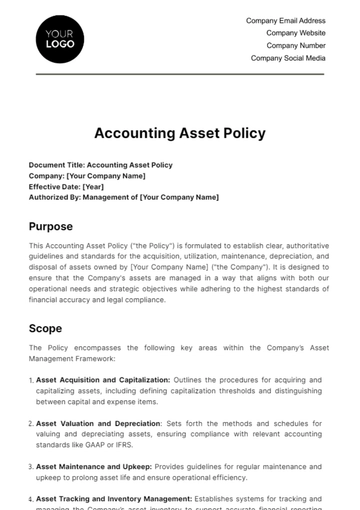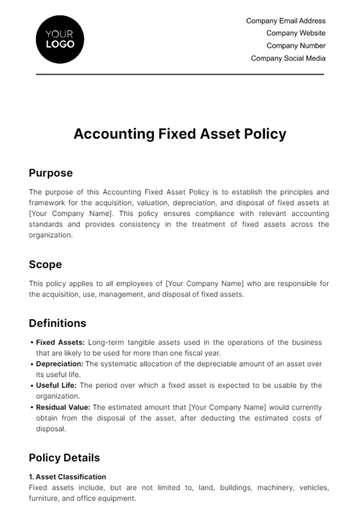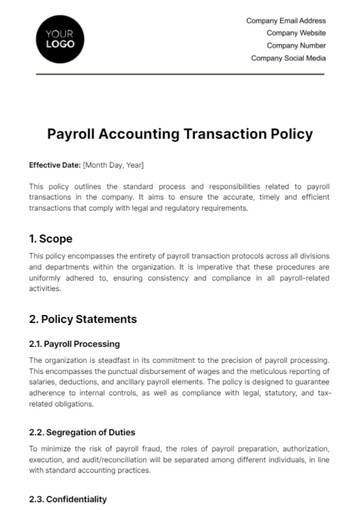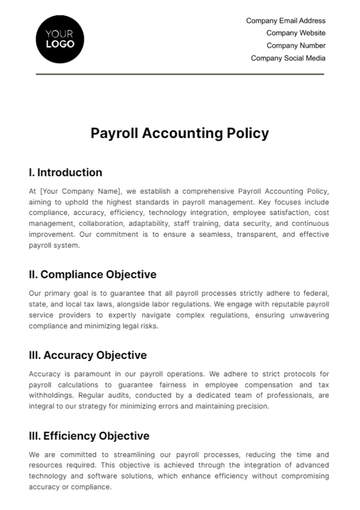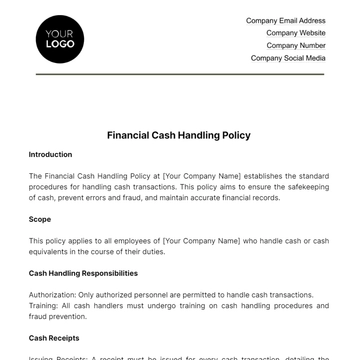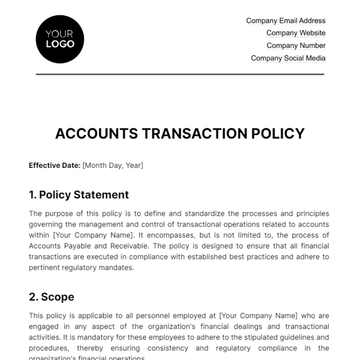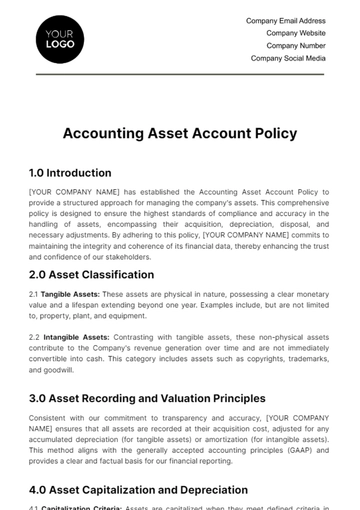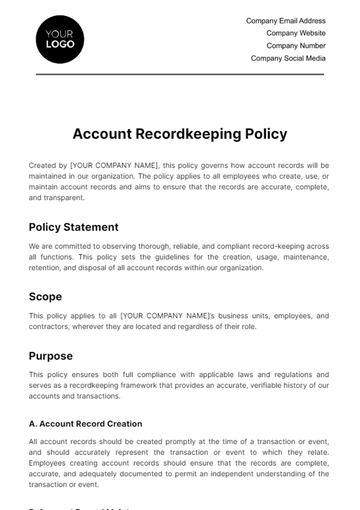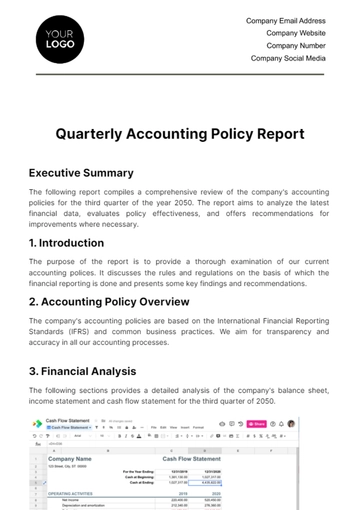Free Accounting Internal Audit Transaction Policy
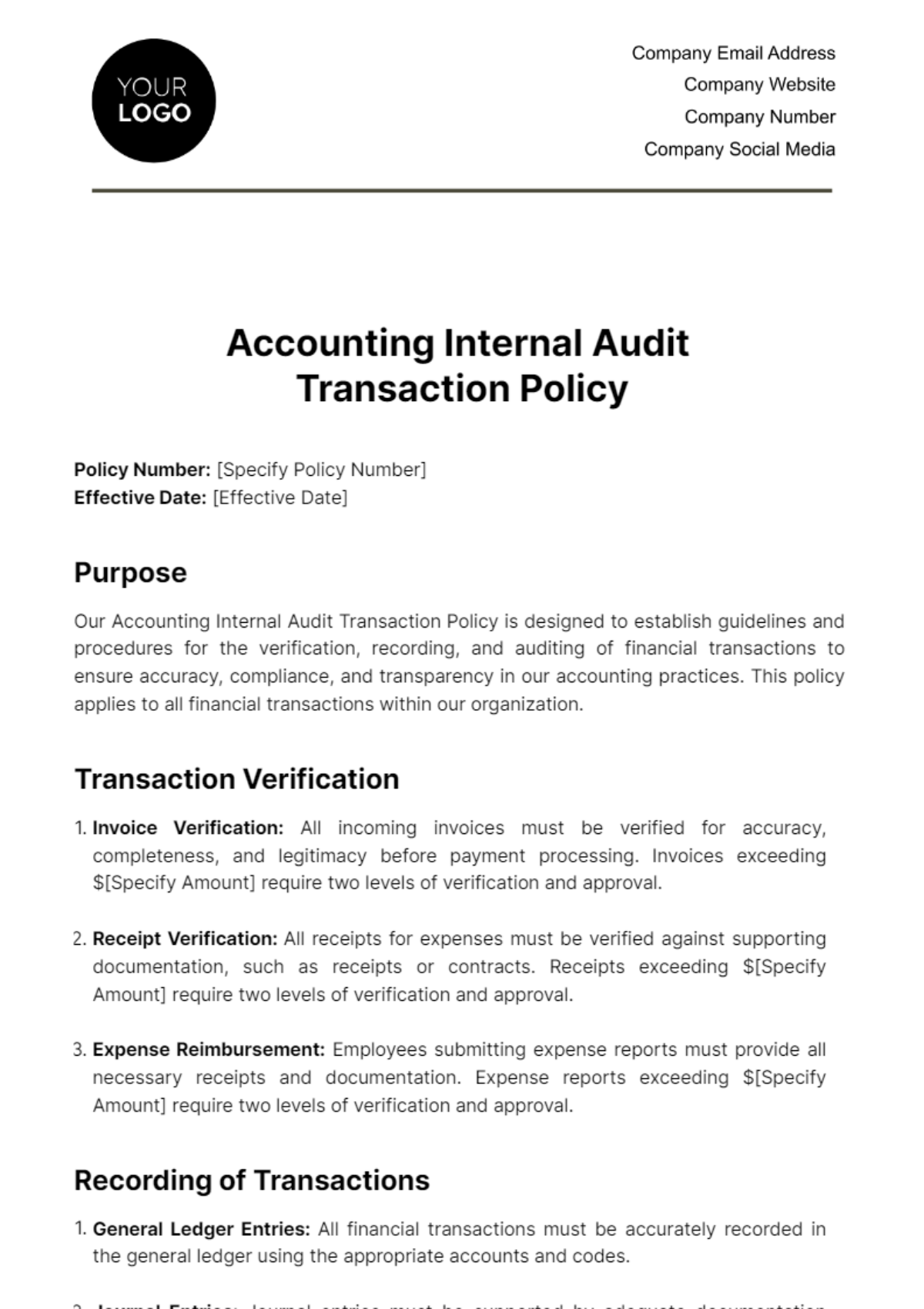
Transaction Policy
Policy Number: [Specify Policy Number]
Effective Date: [Effective Date]
Purpose
Our Accounting Internal Audit Transaction Policy is designed to establish guidelines and procedures for the verification, recording, and auditing of financial transactions to ensure accuracy, compliance, and transparency in our accounting practices. This policy applies to all financial transactions within our organization.
Transaction Verification
Invoice Verification: All incoming invoices must be verified for accuracy, completeness, and legitimacy before payment processing. Invoices exceeding $[Specify Amount] require two levels of verification and approval.
Receipt Verification: All receipts for expenses must be verified against supporting documentation, such as receipts or contracts. Receipts exceeding $[Specify Amount] require two levels of verification and approval.
Expense Reimbursement: Employees submitting expense reports must provide all necessary receipts and documentation. Expense reports exceeding $[Specify Amount] require two levels of verification and approval.
Recording of Transactions
General Ledger Entries: All financial transactions must be accurately recorded in the general ledger using the appropriate accounts and codes.
Journal Entries: Journal entries must be supported by adequate documentation and approved by authorized personnel.
Month-end Closing: Month-end closing procedures must be followed to ensure the accuracy and completeness of financial records.
Transaction Auditing
Internal Audit: Our internal audit team will conduct regular audits of financial transactions to identify errors, irregularities, or non-compliance. Audit findings will be reported to senior management for corrective action.
External Audit: We will engage an external audit firm annually to conduct an independent audit of our financial transactions. The external audit report will be shared with the Audit Committee and senior management.
Segregation of Duties: Segregation of duties must be maintained to prevent conflicts of interest and unauthorized access to financial transactions. Key financial roles and responsibilities will be assigned to different individuals.
Reporting and Documentation
Audit Reports: Internal audit reports will include findings, recommendations, and corrective actions. The Audit Committee will review and oversee the implementation of corrective actions.
Record Retention: All transaction records, including invoices, receipts, and supporting documentation, must be retained for a minimum of [Specify Duration] in accordance with legal and regulatory requirements.
Training and Awareness
Employees involved in financial transactions will receive training on this policy and related procedures. Regular communication and awareness programs will be conducted to ensure compliance.
Compliance and Accountability
Non-compliance with this policy may result in disciplinary action, including but not limited to warnings, suspension, or termination. Accountability for financial transactions lies with the responsible parties and the Audit Committee.
Policy Review
This policy will be reviewed annually or as needed to ensure its effectiveness and alignment with changing business needs and regulations.
Our Accounting Internal Audit Transaction Policy establishes clear guidelines and procedures for the verification, recording, and auditing of financial transactions. We are committed to upholding the highest standards of accuracy, compliance, and transparency in our accounting practices.
Approved by:
[Approver's Name]
[Approver's Title]
- 100% Customizable, free editor
- Access 1 Million+ Templates, photo’s & graphics
- Download or share as a template
- Click and replace photos, graphics, text, backgrounds
- Resize, crop, AI write & more
- Access advanced editor
Optimize your transaction policies with the Accounting Internal Audit Transaction Policy Template from Template.net. This editable and customizable template is meticulously designed for establishing clear transaction policies, easily editable in our AI Editor tool. Ensure your transactions are compliant and efficient, with this essential tool. It's the perfect solution for safeguarding integrity and transparency in your financial transactions.
You may also like
- HR Policy
- Restaurant Policy
- Company Policy
- Accounting Policies and Procedures
- Website Policy
- Privacy Policy
- Safety Policy
- School Policy
- IT and Software Policy
- Law Firm Policy
- Construction Policy
- Interior Design Policy
- Travel Agency Policy
- Education Academic Policy
- Security Policy
- Real Estate Policy
- Expense Policy
- Software Policy

